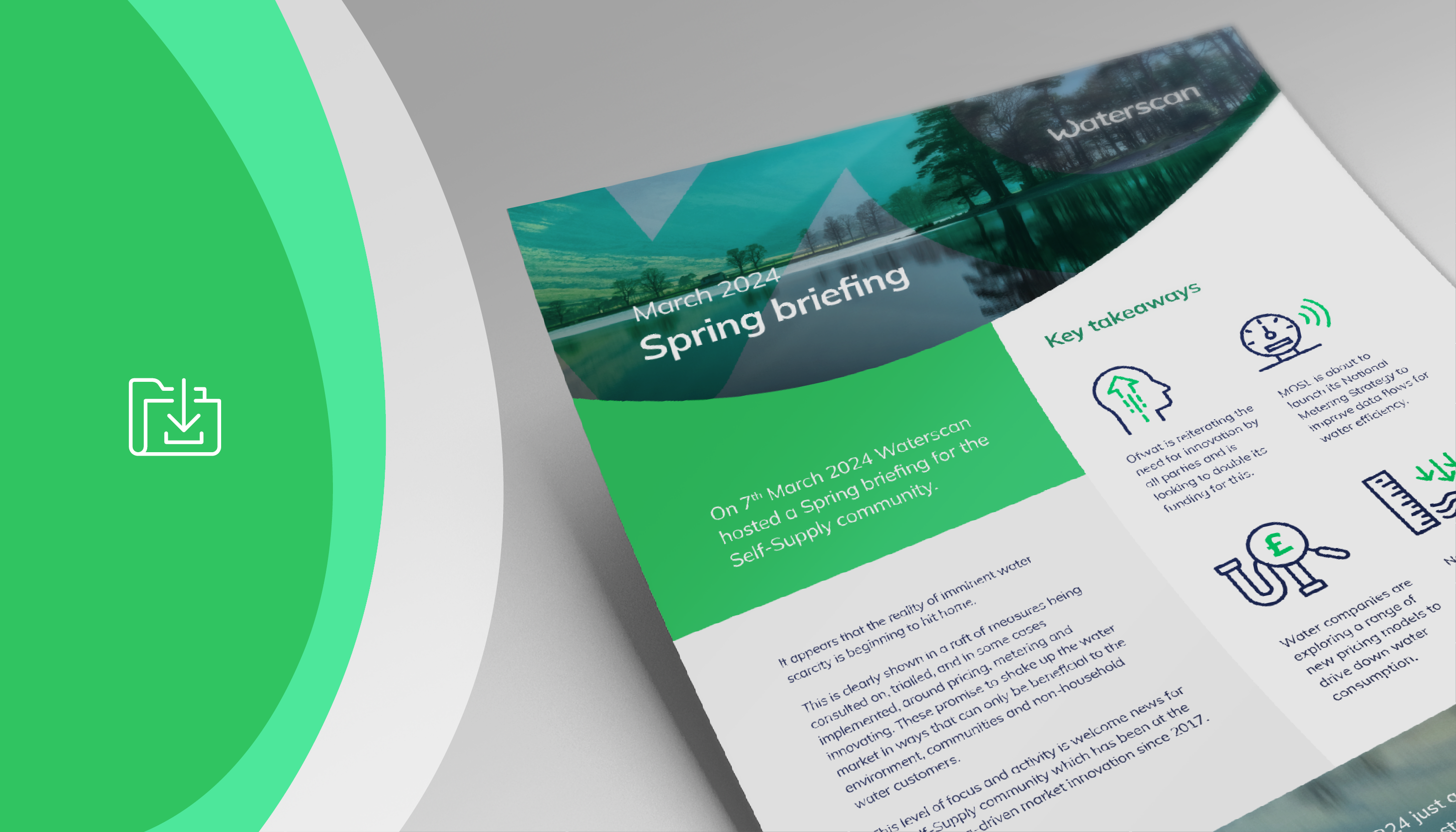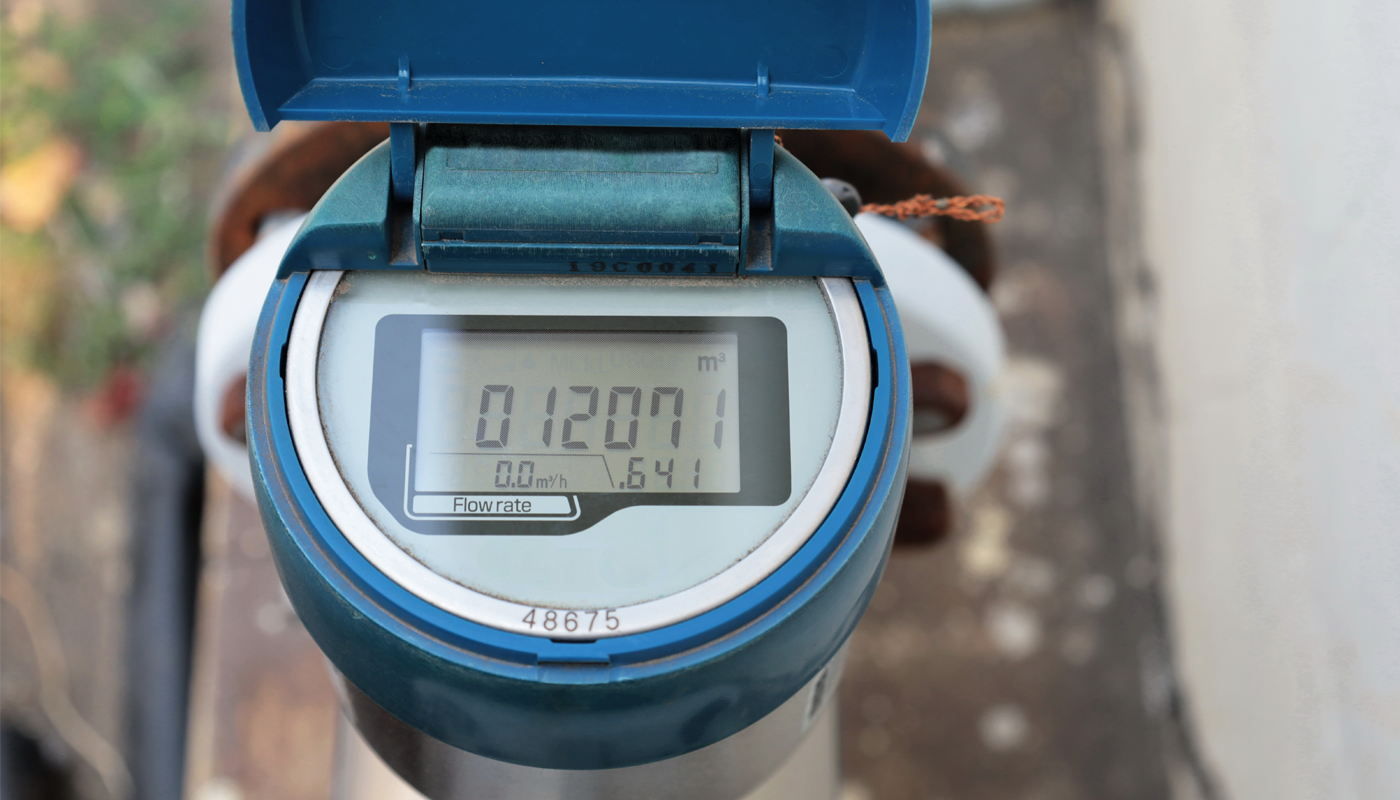Market regulator, Ofwat, has published an overview of developments during the business retail market’s sixth year of operation (2022-23).
A scaled down version of its previous annual ‘State of the Market Report’, this review does not paint the comprehensive picture as in prior years, in that it does not include qualitative customer research or market monitoring submissions from water retailers. You can view the full report here.
Even so, what does it tell us?
Neil Pendle, Waterscan Managing Director, confirms that it is another mixed bag. “Ofwat’s market review shows that the water market is improving, but way too slowly to keep pace with increasing pressures on our water supplies and the risks that these pose to business customers. Residual market frictions continue to hamper the water market becoming a truly effective, customer-led, slick operation. It’s only the 17 companies that have elected to Self-Supply that are taking advantage of the market opportunity to take control of their water usage, and beyond this, to collaborate, innovate and address the wider challenge of water shortage.”
Executive summary
Market composition: New entrants have increased their market share by just over 1% to hold 6.9% of supply points (SPIDs), accounting for 7.7% of total market consumption. This is good news, but it’s important to note that incumbent water retailers still hold the largest market share across SPIDs (92.2%), consumption (90.0%), and revenue (89.6%).
Customer engagement: Switching rates increased by 0.3% to 3.5%, led by larger customers with higher water use. Although the proportion of consumption switched fell from 10% to 7.9% in this reporting period, this customer engagement in the market is a positive development. It indicates that businesses are more aware of their options and may no longer tolerate poor service from water retailers.
Customer satisfaction: Written complaints fell by 16% in this year. However, that’s still over 12,000 issues that customers felt strongly enough to follow-up, with billing the major source of frustration at 71% of complaints. It’s also worth noting that complaint levels remain well above the reduction target set by the Consumer Council for Water. Our experience is that the reported metric does not fully reflect the extent of customer issues: after all, there’s a big difference between complaint and satisfaction. Furthermore, we know that some customers encounter significant barriers in raising formal complaints, something that Ofwat will be following up on.
Market functioning: Three fundamental market frictions continue to hamper progress, leading Ofwat to conclude that ‘it remains the case that the market is not functioning as effectively as it needs to’. These are:
- Data – Ofwat again highlighted that poor quality customer, consumption and asset data is impeding retailers’ abilities to operate effectively in the market, produce accurate bills and involve customers in water efficiency measures. MOSL and The Strategic Panel are working on initiatives to resolve this, such as the Strategic Review of Metering and data assurance work.
- Trading Party Performance – Ofwat drew attention to recent interventions designed to address ongoing issues around trading party performance. These include a review of the Market Performance Framework, the BR-Mex incentive mechanism, and formal holistic reporting to track trading party performance against existing market indicators.
- Wholesaler-Retailer Interaction – Ofwat reflected on the Bilateral Transactions Programme, which it said had ‘transformed the speed, reliability, and visibility of bilateral processes, increasing the number of transactions by 50% and reducing the number of service requests being rejected, ultimately improving customer experience’. This has certainly been our experience – a welcome step-change in market operations, which has enabled us to move faster with customers on efficiency. MOSL’s review of this programme estimated that it had achieved savings of 120,000 hours per year, valued at £2.4m.
Looking ahead
We suggest that there are three steps that the water industry should take to improve the efficiency and customer experience of the non-household water market. First, retailers should focus on providing better customer service and addressing customer complaints in a timely manner. Second, all parties should work on developing more innovative and sustainable solutions for water supply and management. Lastly, regulators should continue to monitor the market carefully and, importantly, act on any anti-competitive behaviour or unfair practices.
Nevertheless, there were some positive programmes of work, and some encouraging trends to build on, reflected in Ofwat’s report, all of which should help customers in the wider market that aren’t already benefiting from Waterscan data and expertise. From a sustainability perspective however, the pace of change must be accelerated, and we hope to see this reflected in the regulator’s next report.




